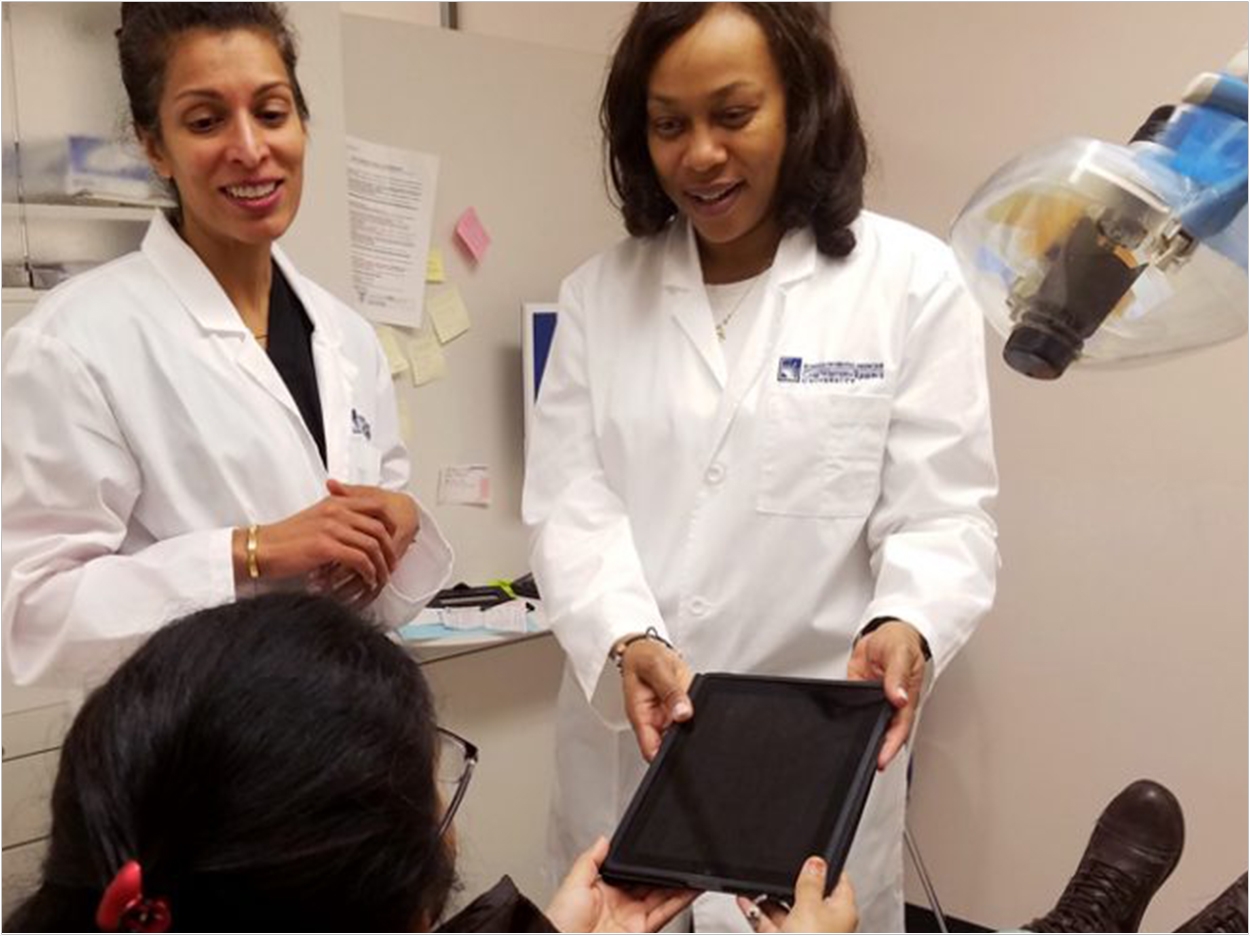
It seems like most people are glued to some kind of device. So why not use those screens to improve follow-up care? Case Western Reserve University’s School of Dental Medicine is recently evaluated 60 patients for their willingness and ability to follow oral hygiene instructions given by an iPad rather than directly from a healthcare professional.
“In healthcare, we are not only preparing for an influx of elderly patients and a growing global middle class wanting to improve quality of life, but also trying to keep a lid on the skyrocketing costs of care delivery. The challenge is how we can help more people who need it and help cut the already high cost of care delivery,” said Leena Palomo, DMD, MSD, associate professor in the Department of Periodontics and designer of the project.
“This is a new pathway to manage a self-care communication to the expected large numbers of people who need it,” Palomo said. “Think about it. Your care professional teaches you how to floss, how to brush. You ask questions, you leave. The conversation takes between eight to 10 minutes.”
On a mobile device, however, patients can request more guidance, have instructions repeated, or learn more, the researchers said, all while cutting costs. Dentists also could include follow-ups and daily maintenance in an electronic platform. For the study, the researchers divided subjects into two groups of 30: those older or younger than 50 years
The younger group overwhelmingly preferred the tablet. Meanwhile, about half of the older group preferred hearing follow-up care instructions face to face, while the other half was indifferent about computer-assisted instructions. In other words, the older group not only didn’t mind using the technology, but also felt comfortable with it.
“We asked, it is actually better to do this with technology?” Palomo said. “The current 50-and-over crowd is as satisfied with technology as the caregiver.
Palomo said the results could have a significant impact on dentistry’s future, as the number of baby boomers will reach 71 million by 2029, according to the US Census.
“It’s nice to have that caregiver talk, but today’s 50-year-old is tomorrow’s 70-year-old,” said Palomo. “That’s what gave rise to this testing.”
Using a tablet or other electronic device for providing self-care instructions shows potential in other areas of medicine as well, Palomo said, such as self-care for diabetic and chronic-obstructive pulmonary disease patients. The researchers further believe that their work warrants significant future investigation, and follow-up studies are in the works. The team included members of the dental school’s periodontics and community dentistry departments and the Frances Payne Bolton School of Nursing.
The study, “Effectiveness of Oral Hygiene Instructions Given in a Computer-Assisted Format versus a Self-Care Instructor,” was published by Dentistry Journal.
Related Articles
School-Based Hygiene Programs Prove Effective
What to Say to Parents About Their Children’s Diet and Nutrition
Dentistry-Specific Tablet Enhances Patient Care and Increases Treatment












